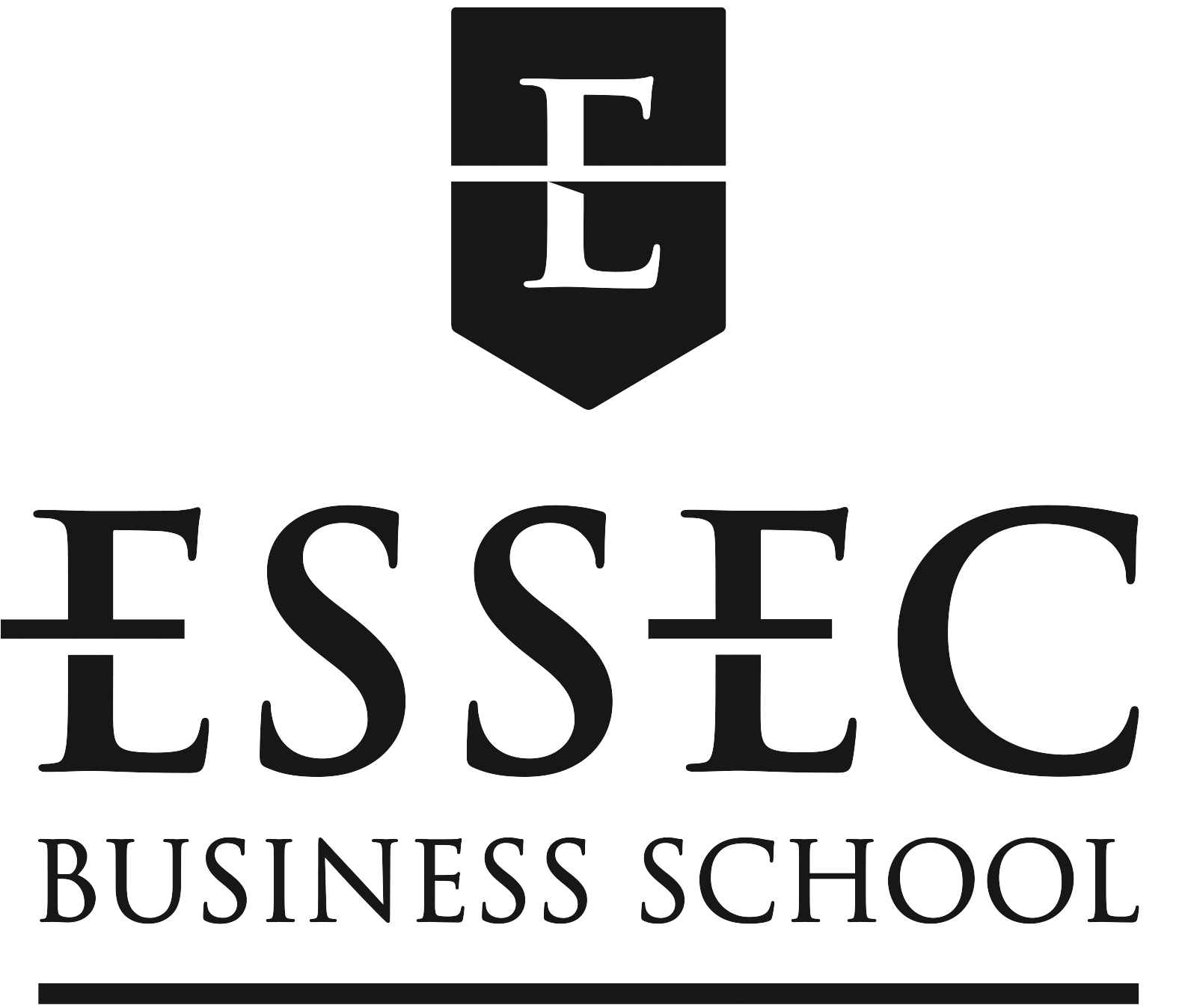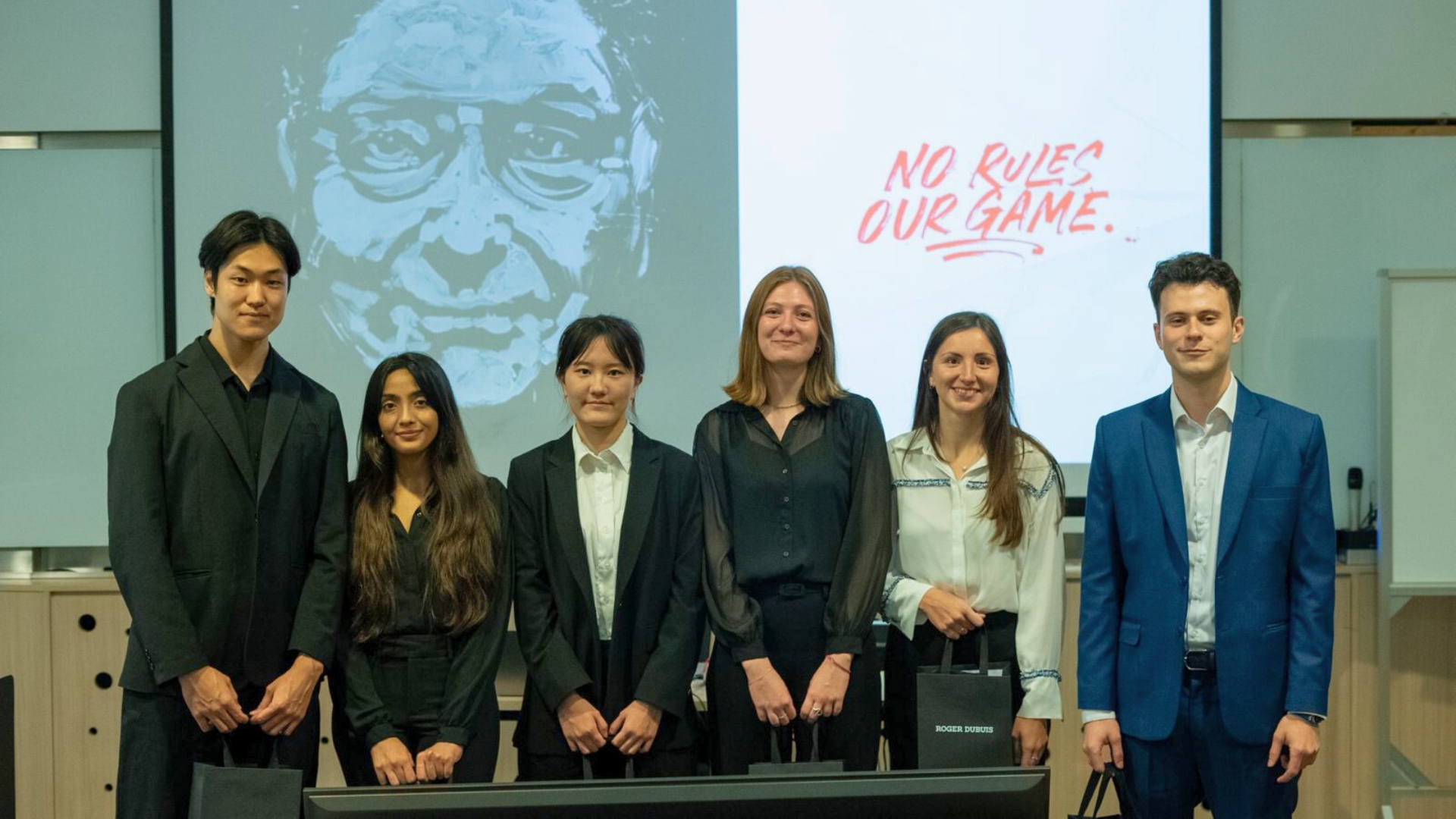Discussions revolving around the ethics of genetically modified humans and the widespread use of surveillance cameras may seem unusual at a business school. However, for 27-year-old Becky Chau, understanding the philosophy of innovation is crucial for organizations today.
“Future business leaders can’t just focus on money-making and profits anymore as the new generations place a high value on company responsibility. The question we need to ask is: ‘Is this responsible innovation?’” she explains.
It is a tricky question and one of many wicked problems the next generation of leaders will grapple with. As they take the helm of established organizations across the globe, the hope is that they will have the theoretical and practical intelligence and the emotional and cultural skills to navigate the landscape.
Becky, who comes from Hong Kong, enrolled in ESSEC’s Master in Strategy Management and International Business (SMIB) program to prepare for this.
Developing a Global Mindset
With a background in business partnerships at a telecommunications firm, China Mobile International, Becky has seen the banes and boons of technology like the Internet of Things (IoT) and 5G, and the impact of each on the livelihoods of people across the world.
Having also worked as an executive officer for the Hong Kong government, she has experienced firsthand the challenges governments face in supporting business and industry development while managing the people’s rising expectations.
Therefore, ESSEC’s SMIB program, which complements its business-focused core with modules like geopolitics and innovation, was an ideal way for her to pick up the skills to plug the gaps.
The international focus was also appealing, as SMIB students choose a specialized track in France or Singapore to guide them toward their regional career goals. This was an opportunity for Becky to break into the technologically advanced Singapore market.
Students also have the opportunity to embark on exchange or double-degree programs with leading academic partners and can look forward to international business trips. This helps broaden their global perspectives and immerse them in different business environments to grasp the nuances of business in other countries.
Applying Industry-relevant Skills
Compared to her undergraduate days, where the focus was on writing essays and understanding theories, ESSEC has given Becky far more opportunities to put her learning into practice.
Having only enrolled in 2020, a major highlight for her is the Asian Strategy Challenge (ASC), a mandatory six-month project for students in the Strategic Consulting track. Under the supervision of an ESSEC coach, students work as consultants and solve real-world challenges posed by a company or an economic cluster in the Asia-Pacific region.
Past projects have addressed issues related to energy and fintech, and this year, Becky’s team is focused on food waste. At the end of the six months, she must have a concrete marketing and customer onboarding plan to get new clients to purchase the food waste solution.
What has been surprising for her is the level of autonomy. “You are given opportunities to voice your opinions and thoughts because the company representatives encourage you to share new insights and bring your own perspectives to the table,” she muses.
“It’s also an enriching experience to have a real consultant share about the day-to-day work in a consulting firm,” she adds.
She further explains that the ESSEC faculty in charge of her group is also from the consulting sector and brings a wealth of experience engaging and pitching to customers. These are what make the SMIB program a good career investment for her.
The Courage to Leap Over Obstacles
Admittedly, time is needed to re-launch her career—the difficulty of which has been compounded by the pandemic. However, it is reassuring that SMIB students at the Singapore campus are paired with a mentor based on their interests and career objectives. This will allow Becky to gain advice on the job market and the right job search tools.
Statistics are also on her side, as SMIB has also retained its position as third in the world for the Master’s in Management category in the QS 2021 international ranking for business masters—in part because 100 percent of graduates secured a job within six months of graduation. Of this, 74 percent found a job before graduation, 89 percent successfully changed function, and 80 percent managed to change industry.
The alumni network, which plays a massive part in helping SMIB graduates connect with employers, also spreads across 24 countries across six continents, in companies like Apple, Deloitte, Hermes, and Unilever, just to name a few.
Becky understands that success is not something she has control over. In fact, with the complexities of the global world, the only certainty is uncertainty. With these factors combined, what she does have, however, is hope—that, like others in her cohort, these skills she takes away will equip her to make a difference.
RELATED POSTS
Green is the New Gold: Giving SMIB Students An Edge in Sustainable Finance
Sebastian Sohn shares why sustainability matters in the Sustainable Finance course for ESSEC Master in Strategy and Management of International…
Three MiF Curriculum Features that Make the ESSEC Asia-Pacific Campus Stand Out
Student Ambassadors share how the ESSEC Master in Finance at Singapore has prepared them for the world of finance.
Freedom and Practicality Draw Students from Asia to the MiM Program at ESSEC APAC
From diverse backgrounds to common goals, students from ESSEC's Master in Management program are shaping their futures with flexible learning and…
The MMD 2024 Digital Marketing Challenge: A Taste of the Real World
The annual Digital Marketing Challenge is arguably the biggest highlight of the MSc Marketing Management and Digital program. Student Ambassador…
Three Ways ESSEC GBBA Students Can Make the Most of Their Exchange
Student Ambassador Sagarika Majumdar and alumna Manqi Zhao share their tips.
How the ESSEC MMD Program Makes Learning Practical and Relevant
Fresh graduates need help entering the workforce, as they need more experience and have a limited understanding of the industry. ESSEC Master in…







